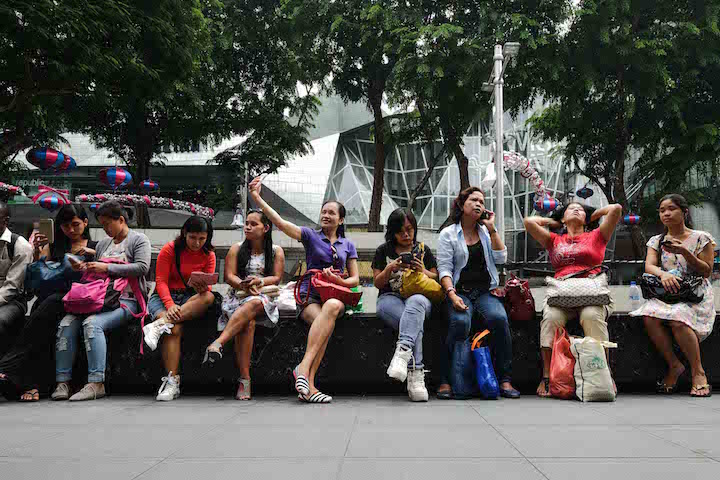Singapore is said to employ around 250,000 foreign domestic workers, with a bulk of them being Overseas Filipino Workers. The size of the industry alone has called the attention of Singapore’s Ministry of Manpower as well as local non-government organizations. Despite the institutional effort to reform the treatment of domestic workers, the abuse of these helpers continues to be a worrying issue.
Just last December 2018, the Ministry of Manpower (MOM) was forced to release a ‘reminder’ on the well-being of foreign domestic workers. It stated:
As an employer, you are responsible for the health and well-being of your foreign domestic worker (FDW). You must provide for rest days, proper accommodation, adequate medical care, and safe work conditions.
It mandates that domestic helpers are entitled to at least 1 rest day per week and should be given accommodations which reach certain standards. It also advised that employers take responsibility for their helpers’ medical needs. But most importantly, the reminder gave a strong call to properly provide enough food (3 meals a day) for said helpers.
(This OFW loves her pets so much she flew all 28 of them to their new home)
A Singaporean news site commented that the reminder comes on the heels of Singaporeans viewing “hired hands as salaried workers, and not exactly part of the household.” It’s become a problem to the point that a few hundred cases of undernourished domestic workers were recorded in 2018.
ChannelNewAsia claims it is worst during December, or the holiday season, since many families go out of the country without leaving anything for their helpers.
At times when the helpers are left to tend to the house alone, they are expected to find and pay for their own food, even if they are still ‘on the job’.
Paulene, an Overseas Filipino Worker in Singapore, says that she was only left with “half a can of luncheon meat, some dumplings, eggs, noodles and onions” when her employers went abroad. She was only given S$20 (around Php750) a week to cover the groceries for herself and her employer’s daughter, who also stayed behind. Since living expenses in Singapore are so high, that amount wasn’t even enough to cover 7 days.
But it doesn’t just happen when employers leave their helpers on their own. There are a number of employers who simply don’t give enough food to their helpers, if at all. A Transient Workers Count Too (TWC2) spokesperson stated:
Our case numbers have come down over the last few years, but our social workers around four years ago reported that they were hearing more complaints from workers about inadequate food in general, such as having rice and some cheap green vegetables for meal after meal.
Another OFW, Raquel Mondarte, validates this with her own experience. She shares that while her employers were “great” they were also “stingy with food”. She’d often need to find extra food to be able to eat enough within the day since she wouldn’t even be given vegetables or meat for her meals. Her friends and neighbors were the ones to provide for her meals instead, offering canned goods or even home-cooked meals. That, or she would have to buy food with her own money.
There are several cases where domestic helpers are forced to eat stale food or the scraps of their employer’s leftovers. They are also shamed by employers who think they’re eating ‘too much’ and force themselves to eat less. Some even report that food inventory is strictly regulated by surveillance cameras in the kitchen to ensure that domestic helpers only eat what they’re given.
(OFW in Hong Kong is fired after being diagnosed with cancer)
Despite these conditions, foreign domestic workers are still afraid to speak up. They worry that they will be reprimanded or fired, and these are things they cannot risk doing. They are forced into situations of subservience because they rarely have any other choice.
Share your thoughts on foreign domestic abuse with us in the comments!
Sources: CNA, Ministry of Manpower





